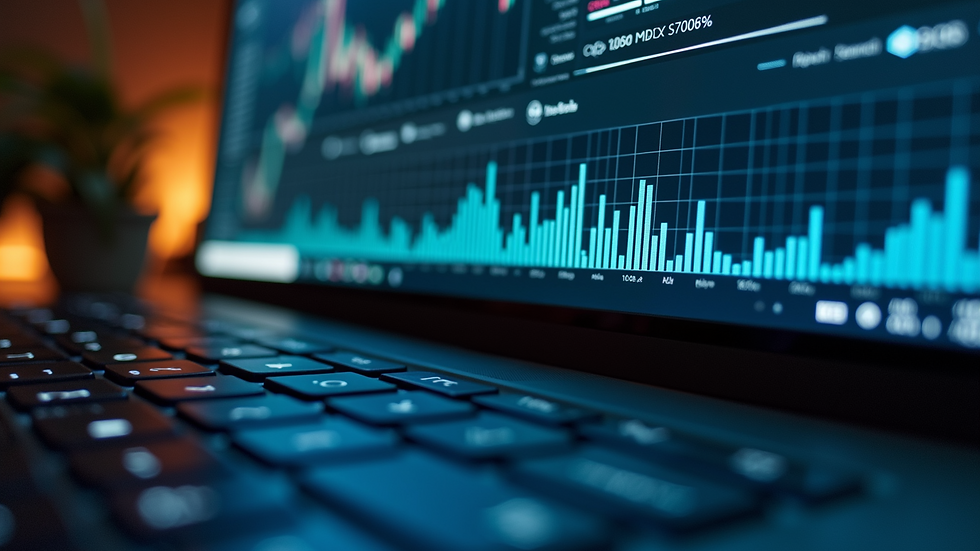How to Optimize Your Computer’s Speed and Performance
- Jul 29, 2025
- 4 min read
In today's digital age, a slow computer can be a significant roadblock to productivity. Whether you are working from home, engaged in online gaming, or simply browsing the web, computer performance can greatly impact your experience. Fortunately, there are many ways to boost your computer's speed and efficiency. This blog post will explore proven methods and techniques to optimize your computer's performance.
Understanding Computer Performance
Computer performance refers to how well a computer operates when executing tasks. Many factors influence performance, including hardware specifications, software configuration, and general maintenance practices. A computer that runs slowly can be frustrating; however, with a little knowledge and proactive measures, you can rejuvenate its speed.
Assessing Your Computer's Performance
Before diving into optimization techniques, it's essential to evaluate your computer's current performance. Use built-in tools such as Task Manager on Windows or Activity Monitor on macOS to identify what is consuming resources. You can look for:
CPU Usage: A high percentage may indicate that a program is using too much processing power.
Disk Usage: Check if your hard drive is being overworked, which can slow down operations.
Memory Usage: High RAM consumption can lead to performance lags.

Cleaning Up Your Computer for Better Performance
One of the first steps in optimizing your computer's performance is to declutter and clean up the system. Here are some effective ways to do this:
Uninstall Unnecessary Programs: Go through your list of installed applications and remove those you no longer use. This clears up space and helps reduce background processes.
Delete Temporary Files: Use tools like Disk Cleanup on Windows or built-in cleanup utilities on macOS to remove temporary files and caches, which can accumulate over time.
Organize Files: Keep your desktop and folders organized. Too many files in one place can slow down your system.
Defragment Your Hard Drive: If you're using an HDD, defragmenting it can improve performance by reorganizing fragmented data. Note that this is not needed for SSDs.

How Long Should an Acer Computer Last?
Acer computers are known for their affordability and performance. However, their longevity largely depends on the model, how you use it, and how well you maintain it. Generally, you can expect an Acer computer to last between 3 to 5 years. High-performance models might last longer if properly maintained, while budget models may experience performance issues sooner. Regularly optimizing your system can also extend its lifespan significantly.
Upgrading Hardware Components
If your computer struggles even after cleaning it up, it may be time to consider hardware upgrades. Here are some upgrades that can yield significant performance benefits:
Install More RAM: Adding RAM can facilitate quicker multitasking and improve performance, especially with resource-heavy applications.
Upgrade to an SSD: Replacing a traditional hard drive (HDD) with a solid-state drive (SSD) dramatically speeds up boot times and application loading.
Replace the Graphics Card: If you're into gaming or graphic design, upgrading your graphics card can enhance the visual performance of your applications.
Clean the Interior: Dust can accumulate inside your computer, causing it to overheat and perform poorly. Regular cleaning can help keep the system running cool.

Optimizing Software for Peak Performance
Beyond hardware improvements, optimizing your software can significantly boost computer performance. Here are practical software-related techniques:
Update Your Operating System: Regular updates can introduce performance improvements and security patches to combat vulnerabilities.
Limit Startup Programs: Disable unnecessary applications that launch on startup to free resources.
Use Lightweight Software: Consider switching to software alternatives that require fewer resources. For instance, use lighter web browsers or text editors if you don’t need advanced features.
Run Antivirus Scans: Malware can consume resources and hinder performance. Regular scans can identify and remove harmful software.
Adjust Visual Effects: For Windows users, you can adjust the appearance and performance of Windows to prioritize speed over aesthetics by changing settings in the System Properties.
Consider Professional Help
If you've tried everything, but performance issues persist, you may need to seek professional help. Services like acer computer repairs can diagnose and solve underlying issues that might be affecting your computer's functionality.
Maintaining Your Computer for Long-Term Performance
Once you have optimized your computer, it's crucial to maintain it for sustained performance. Here are some tips:
Regularly Clean Your System: Set up a monthly schedule for clearing temporary files and scanning for viruses.
Backup Data: Regularly back up essential files. An effective backup strategy can safeguard your data and may allow for quicker recovery in the event of hardware failure.
Monitor System Health: Use diagnostic tools to keep an eye on system health and performance metrics.
Educate Yourself: Stay updated on best practices for computer maintenance and performance.
Incorporating these habits into your routine can prolong your computer's lifespan and keep it running smoothly.
Final Thoughts on Computer Performance
Optimizing your computer's speed and performance doesn't have to be a daunting task. By following these practical steps, you can make a significant difference in how your computer functions. Whether it's cleaning up your system, upgrading hardware components, or optimizing software, regular maintenance is key to a high-performing computer. Remember, the ultimate goal is not just to fix immediate issues but also to cultivate good habits for the long run.
By being proactive, you can ensure your computer remains a reliable tool for your tasks, keeping you efficient and productive in your digital pursuits.




Comments